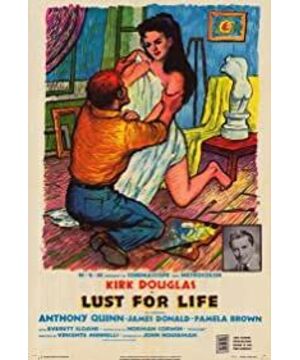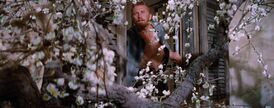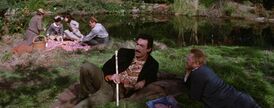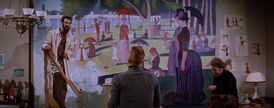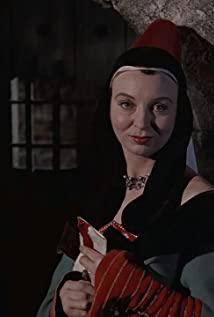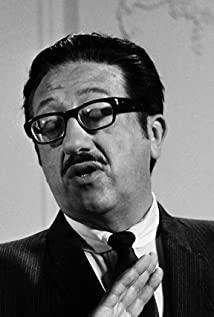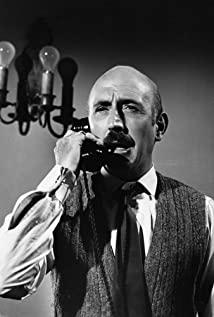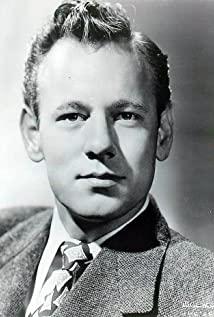He paints.
He died.
The wheat field was golden, and
a flock of crows screamed and flew across the sky.
——Baudelaire
For most people, growing up means getting older, and maturity, to a certain extent, only means becoming smoother in life. In this slow and painful process, we involuntarily pick and throw, like the corn-picking monkey in the textbook, discarding some of the things that collide sharply with reality. And we all think that's maturity. What started out as a dream, an idea, or a belief often ends up being the victim of our compromise with life.
But some people are different from us. For them, ideas, dreams or beliefs are more important than anything, even life. These things are what they live for, and important evidence that they feel their pulse. Not yielding to power, and certainly not compromising life, they persevered for it to the death.
I didn't know Vincent Van Gogh before watching "Longing for Life". After watching "Desire for Life", I still don't know Vincent Van Gogh. But I have the utmost respect for him. Because he is also one of the few stickers.
When the "Statue of Doctor Gachet" was sold to a Japanese collector for $82.5 million, and when "Iris" was sold for $53.9 million, what expression would Van Gogh in heaven have known? Is it a slightly childish smile? Or raise the corners of your mouth in sarcastic sadness?
At the beginning of the film, Vincent's childhood has been skipped, and it starts directly from his participation in theological preaching. That year should be 1878, Vincent twenty-five years old. Hoping to succeed his father in some way and to spread the word of God to the less fortunate, he went to study at a gospel school near Brussels. In his letter to Theo, he said he hoped this would bring some relief to his family. After his studies, he petitioned the church to go where no pastor would go: the Borinage. In the Borinage, the lower classes work like livestock. Their home is 500 meters deep underground. Men are crawling and digging coal with their backs on their backs. Women are picking up coal in the mines with baskets on their backs. Children have no money to go to school, but drag their childish and unformed bodies with adults. We work together. This kind of hard life made Vincent very shocked. He took off his coat, went deep into the misery of the miners, worked with them, lived in a shabby house, gave up his bed to a sick woman, gave his clothes to the children, and slept himself in a haystack . However, the church believed that his actions degraded the dignity and decency of the church and forced him to relinquish his post. In the death of the miner and his own illness, Vincent sees through the hypocrisy and hypocrisy of the so-called "God's Gospel", and realizes that this is a failed love.
This life experience had an extremely important influence on Vincent's outlook on life and the world. Since then, he has spent his whole life wearing ripped cotton-padded clothes. Compared with the suit and tie that appeared in the movie, it is not so much a material difference, but a spiritual difference. If the previous life was a gorgeous mask, now he saw the face under the mask - the real face that was distorted and deformed by the mask's hoops, the truth that was silent with sweat and red eyes. . Since then, Vincent has penetrated into the so-called "low-level people" in the eyes of the mainstream society at that time, and joined with weavers, farmers, fishermen, etc. His early works basically focused on the performance of labor and laborers, such as " The Digger, The Potato Digger, The Charcoal Ship and Two Men, and the Weaver series.
Three "Never," from cousin Kai's rejection. She didn't give Vincent a chance, maybe it was because the deceased husband was too unforgettable, or maybe it was because Vincent's fanatical way of showing love made her unacceptable, and even Vincent was still unmoved when he put his hand in the candle. . After that, it was tossed and settled. He studied painting, lived with the prostitute Krasina, and took care of her and her children. separate. Go to Amsterdam, travel alone, move to Nuenen. Father dies, quarrels with sister, and then runs away. Then I went to Paris, my dearest Theo. In Paris, he met many painters who were later famous, one of them was Paul Gauguin in the later "ear cutting incident".
"The older, ugly, disgusting, poor and sick I am, the more I want to shame myself with bright, gorgeous and well-designed colors..." Van Gogh's words hit my heart like a hammer. In the later period of his life, suffering from loneliness, poverty and illness, he lost control of his mind several times and cut off his own ears. Returned to Paris to receive treatment from Dr. Gachet. In 1890, in a golden wheat field in the countryside, he shot himself in the lower abdomen, then returned to his residence to lie down and died in bed two days later.
Some say he is a forsaken of God. However, in my opinion, in a way, it was Van Gogh who abandoned God. If the belief in painting is given up halfway through and switched to make a living, life may not be very rich, but it should be no problem to rely on Theo's help to support yourself. But Van Gogh didn't do this, he regarded painting as his life, his spiritual support. As he said: "My work is my body and soul, for which I risk losing my life and my mind...".
In some movies, the movie completes the story. In the film "Longing for Life", it is the story that completes the film. We were first moved by Vincent's spirit and his legendary but tragic life. Then, I have time to pay attention to where the background music starts and ends, how the camera moves slowly and where it becomes a close-up, and how the color changes to suggest the emotional changes of the characters, etc. These film details are handled. In the end, still moved by Vincent, sitting in the cool chair, trembling and sighing for it.
There are some people whose names are worth remembering from generation to generation.
He is the shadow of death, and
he may harvest human beings. There is no trace of sadness
in this god of death . He worked in bright sunlight, and the sun shone upon the earth with a light of pure gold. - Van Gogh
View more about Lust for Life reviews


